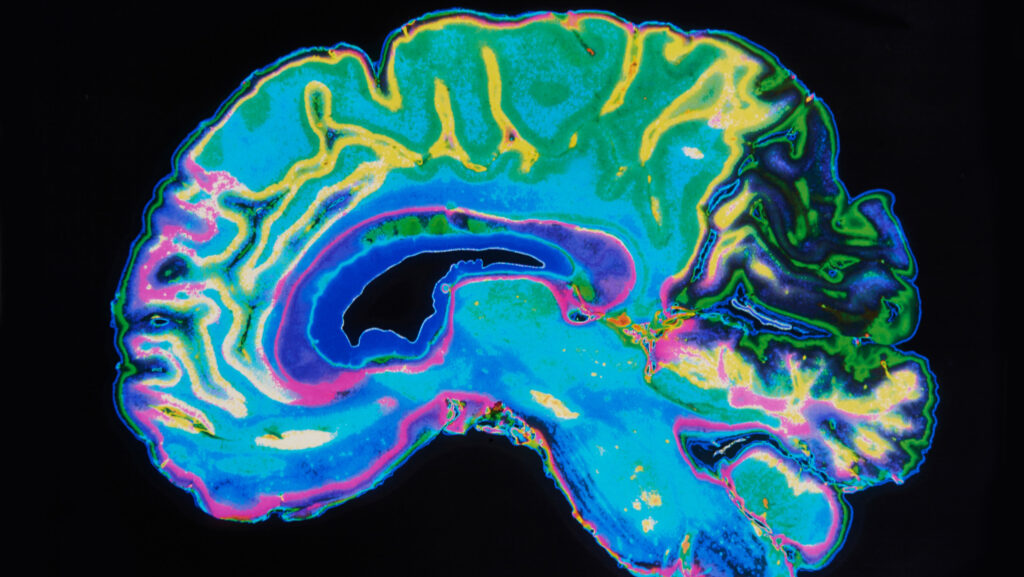Farm Doctor: Could you recognise the signs of dementia?
 © Adobe Stock
© Adobe Stock We all forget things from time to time, and this is just part of being human.
When a person starts to forget lots of things, it can affect how they cope in their day-to-day life, and may be a sign that they are developing dementia.
In this month’s edition of Farm Doctor, farmer’s daughter and qualified doctor Camilla Baker discusses the signs and symptoms of dementia, including guidance from charity Alzheimer’s Society on how, when, and where to seek help.
See also: Farm Doctor: How to spot signs of poor mental health
What is dementia?
Dementia is a general term for a decline in brain function. It affects our memory, how we process information, make decisions, and our general mental wellbeing.
“Nearly one million people in the UK are affected by dementia, and with an ageing population, it is important to recognise the signs and symptoms, and to know when to seek help for yourself or others,” says Camilla.
There are many different causes of dementia, the most common being Alzheimer’s disease.
This causes the brain to shrink and the nerves and connections to gradually stop working. As we age, the risk of dementia and Alzheimer’s disease increases. However, it can also affect people under the age of 65, known as early onset dementia.
What are the signs and symptoms?
Each person experiences dementia in their own individual way. Different types of dementia also tend to affect people differently, especially in the early stages. Some of the most common early signs and symptoms of dementia include:
- Memory loss – problems recalling things that happened recently or a name
- Difficulty concentrating, planning or organising – struggling to make decisions, solve problems or follow a series of steps (such as cooking a meal)
- Problems with language and communication – difficulties following a conversation or finding the right word for something
- Misunderstanding what is being seen – problems judging distances (such as on stairs) or perceiving the edges of objects, and misinterpreting patterns or reflections
- Being confused about time or place – losing track of the time or date, or becoming confused about where they are
- Mood changes or difficulty controlling emotions – becoming unusually anxious, irritable, sad or frightened, losing interest in things and personality changes.
Diagnosis and management
There is no single test used to identify dementia; a diagnosis is usually based on several tests and assessments, which could include mental ability tests and brain scans, but it varies for each individual.
For many, getting a dementia diagnosis can be quite simple and take just a few weeks. For others it can take much longer – sometimes more than a year.
Getting a diagnosis can be daunting, but a timely diagnosis is crucial to accessing treatment and support that can help with managing symptoms.
“There is no cure for Alzheimer’s disease and management will be very person specific,” explains Camilla.
“Health professionals will work together to make sure the person’s value, individuality and their thoughts are all considered.
“Patient-centred care also takes into consideration the importance of those close to the patient, such as family and carers.”
There are some medicines available that can be used in patients with dementia, such as donepezil, galantamine and rivastigmine.
“These medicines do not stop the disease progressing but may help with symptoms. They are typically prescribed by a doctor who specialises in dementia and Alzheimer’s disease,” Camilla says.
Advice from Alzheimer’s Society
Dementia in a farming context can bring particular challenges. Many farmers continue to work well into their retirement years, which means that if they do start to experience symptoms of dementia, it can have serious implications on their livelihoods and personal safety.
Charity Alzheimer’s Society says that people living in rural areas tend to have poorer access to dementia support and specialist services.
However there are many forms of remote support, such as dementia helplines, web-based medical appointments and help forums.
A piece of practical advice that the charity recommends is setting up a lasting power of attorney (LPA) so that when a person starts to lose their capacity to make financial decisions, a trusted family member or friend can quickly take the reins and keep the business going.
Without an LPA, a family may have to spend many thousands of pounds and experience long delays trying to transfer control of essential business activities, such as banking.
Alzheimer’s Society has a dedicated team of volunteers who help people set up LPAs, and can be accessed through their support site.
Helplines and support
For support and information on Alzheimer’s and dementia, visit alzheimers.org.uk or phone the Dementia Support Line on 0333 150 3456.

